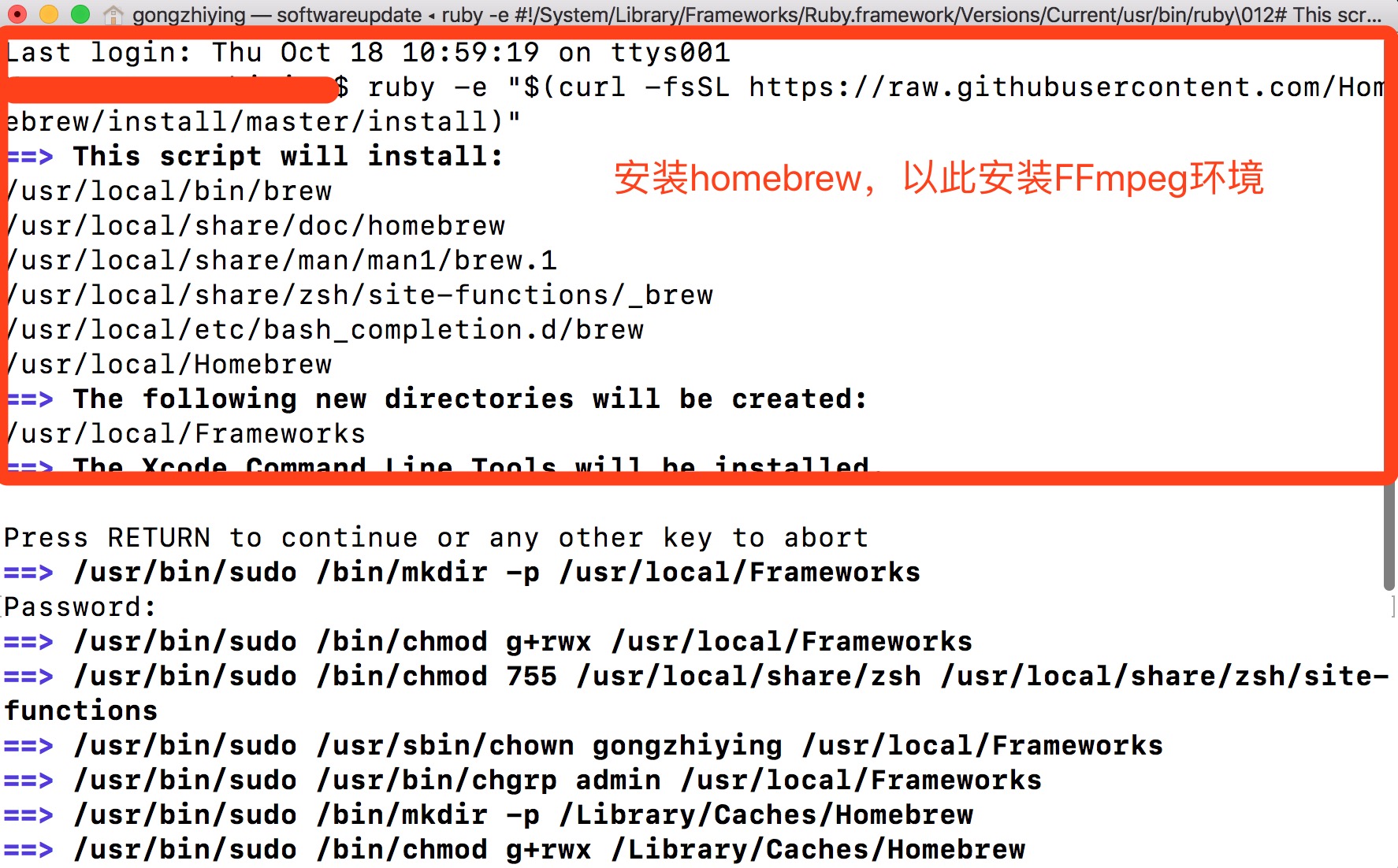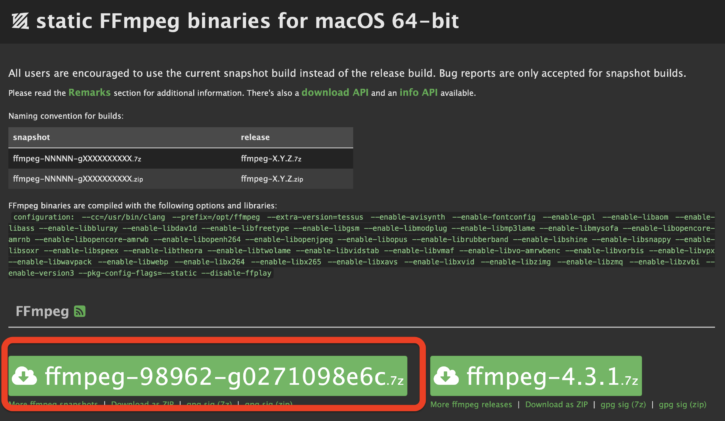

Conversely, the FFMPEG Project actually documents and supports Homebrew. For instance, in this article I actually had some bugs with Homebrew I had to fight. In truth I have just had a little easier time with MacPorts while I seem to have to wrestle a little more with Homebrew. Homebrew is a little easier to use, MacPorts is a little more complicated but powerful (though many would argue the point). You might be asking “what’s the difference between Homebrew and MacPorts?” Well, they basically do the same thing. The command will be “brew install ffmpeg –ANY-OPTIONS-YOU-WANT”.Įxample: brew install ffmpeg -with-fdk-aac -with-toolsĪ couple quick notes. To answer this question, you need to link up ffmpeg, but Id run some housecleaning too.

Thankfully it has gotten easier though the simpler installation methods aren’t well published. However, one down side to FFmpeg is that it’s flexible nature can make it tricky to install.

Components of FFmpeg are found in many media products. VLC actually uses the codec library from the FFmpeg project, that’s why it works so well. If you work in media you probably use VLC, a great tool, plays about anything. It includes sub-components that allow for just about infinite flexibility. It includes an entire library of codecs that can be used to wrangle just about any piece of video. In case you get an error about your shell not finding /bin/sh, prepend the name of a shell you have installed on your PC to the command line.For those that don’t know about FFmpeg, it’s a project containing a command line suite of tools that allow someone to convert quite literally any piece of media to any other piece of media. In case you get an error in step 1, use curl -o nasm.zip instead. So, we can conclude that we cannot install nasm into /usr, but into /usr/local. Paths and apps that third-party apps and installers can continue to write to include: System Integrity Protection includes protection for these parts of the system: Whilst the above should work perfectly fine on Linux, I learned that it does not work on Mac OS (thank you !) as stated in the Mac OS docs on System Integrity Protection:

configures the source code to have the programs installed to the right place.It's a weird error, but a workaround would be to execute following commands: $~ wget -O nasm.zip


 0 kommentar(er)
0 kommentar(er)
